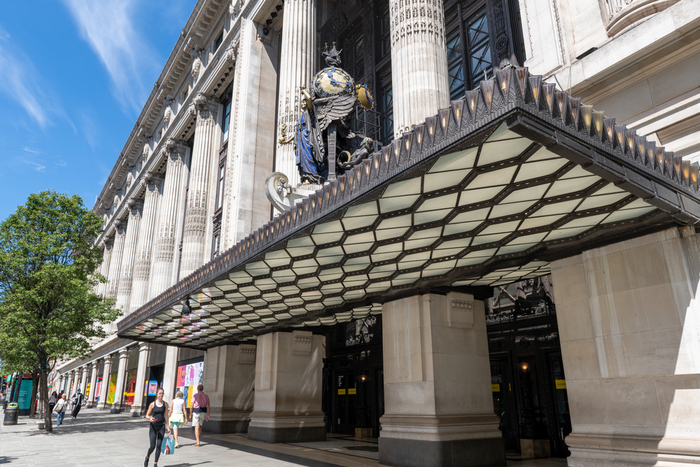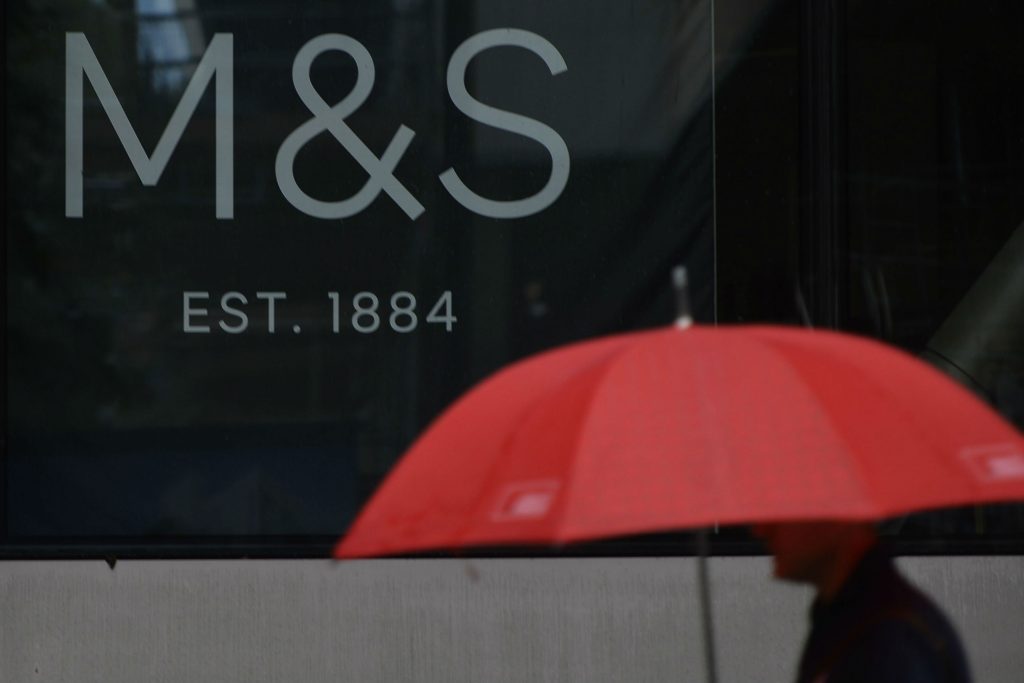Selfridges was Europe’s most visited destination in 2021, according to Uber.
Originally founded by Harry Gordon Selfridge in 1908, Selfridges was first bought by the Weston family for £598 million in 2003, in a deal spearheaded by Galen Weston. When he died last April, aged 80, the Weston family put the chain on sale.
There are currently 25 Selfridges worldwide, with stores in Dublin, the Netherlands and Canada.
Austrian real estate group Signa joined Thai retailer Central Group in the £4 billion bid for the luxury department store. Together, they plan to revamp the brand’s flagship Oxford Street store, upgrade the food hall and – most significantly – develop a luxury hotel and serviced apartments.
The concept of a Selfridges hotel is not a new one; the first Selfridges Hotel was in operation from 1972 to 2008. Since it closed its doors, a portion of Selfridges’ Oxford Street property has gone unused.
Signa and Central’s planned takeover of Selfridges’ stores in the UK, Ireland and the Netherlands will give the combined groups’ luxury department stores an expected annual turnover of more than €7 billion by 2024, compared with €5 billion in 2019.

With tourism levels dropping by a colossal 97% in the UK last year, Selfridges’ plans for a new hotel could provide a glimpse of hope for the crippling travel sector.
According to Visit Britain, there were 471,000 inbound visits to the UK in the first half of 2021 among air passengers – 97% down on 2020. These visitors spent £634 million – 94% less than the previous year.
Catherine Erdly, founder of The Resilient Retail Club, said the Oxford Street area has really suffered from a triple blow of lower domestic footfall and tourism, lack of office workers in central London, and a drop in international tourists.
“The Selfridges hotel will definitely be aimed at luring some of those lucrative international tourists back to the area,” she told Retail Gazette.
“The hotel will no doubt be trading on the cachet of the Selfridges name, and should entice tourists to come and stay in their iconic building. It is also a practical solution to introduce another revenue stream from this real estate.
“Many department stores are looking at ways to bring in additional forms of income, such as John Lewis considering rental homes. A hotel is a logical next step to capitalise on the Selfridges brand, as well as offering a new type of experience to the die-hard Selfridges shopper.”
While other department stores in central London are also planning an overhaul such as selling space and converting existing space into offices and arcades, Selfridges undeniably stands out from the crowd with its hotel concept.
The initiative arguably comes at the right time as Visit Britain forecasts inbound visits to increase to 24 million, and a spending rise to £19.2 billion. These are 59% and 67% respectively of the visits and spend levels seen in 2019.
By the end of 2022, visits are forecast to have recovered to around 68% of pre-Covid levels.

Retail expert Nelson Blackley said it is estimated that around 50% of the spend in London’s West End comes from international tourists, and that about 20 million overseas visitors typically come to London every year.
“According to the New West End Company, figures published earlier this year confirmed visitor numbers at many of London’s most famous tourist attractions, such as St Paul’s Cathedral, Westminster Abbey, Tower Bridge and Kensington Palace, fell by more than 80% during 2020,” he revealed.
“Footfall in London’s West End was down 72%, the attempt by Westminster City council to lure tourists back with a 23-metre high man-made ‘Marble Arch mound’ proved to be a very expensive failure.”
While some international travel has resumed during the second half of 2021, Blackley believes that “it’s going to require a much longer period of stability without the risks associated with Covid, for international visitor numbers to London to recover to pre-pandemic levels.
“However, by then this proposed reopening of the Selfridges Hotel should hopefully be complete and so well timed, and uniquely located, to take full advantage of an international tourist ‘bounce-back’”.
Blackley added that given the trading problems seen by many department stores across the country over the past decade or so, repurposing the property into luxury accommodation, whether apartments or hotels, makes perfect sense.
However, like successful physical retail, it’s always about location and so Oxford Street – just short walk from many of London’s key attractions – is ideal for this type of conversion.
“Outside of the UK’s major tourist centres, such as London, Oxford, Cambridge, Bath, York, or Edinburgh the high investment required might be considered too much of a risk until there is hard evidence that international travel and inward tourism to the UK has fully recovered,” he explained.
In comparison, Oxford Street is in a transitionary phase, with many big retail brands such as Debenhams, Topshop, Next, River Island and Gap either closing their stores or going into administration. Store use is changing – as Ikea’s £400 million purchase of the Topshop flagship clearly shows.
Chief executive of finance company Fintrex, Neil Debenham, told Retail Gazette that Selfridges’ new plans are likely to prove to be a big hit for tourists.
However, he warned that the public needs to be mindful that the Selfridges brand itself appeals to a particular customer demographic and it is anticipated that the hotel will reflect this, possibly making it inaccessible to the masses.
“Selfridges has successfully established its brand as a staple of modern British culture, which is why a visit is at the top of the list for many tourists visiting the UK,” he said.
“Aside from Harrods, there are few retail names that can compete. While tourist numbers may be down due to Covid, there is nothing to say the UK, and in particular London, will suddenly lose its position as one of the world’s top tourist destinations.
“The company has always prided itself on its ability to attract tourists. Selfridges understands its market and customer-base, and by adapting to changing market conditions, its decision to launch a hotel reflects its agile thinking. If correctly marketed, the Selfridges hotel will offer tourists an exclusive experience that could become a hotspot for influencers and provide another reason for people to visit the store.”
Debenham added that while the old Selfridges hotel shut down in 2008, it should not overshadow the new luxury hotel venture Central and Signa are taking with Selfridges.
“The challenge is for Selfridges to identify and properly understand what its target market wants from their hotel experience, and leveraging its brand to offer a unique and desirable service,” he said.
“Importantly, this shouldn’t be undertaken at the expense of its retail services – rather, it should be seen as another way of promoting its shopping experience.
“Luxury department stores must update their offering to not only survive but thrive in the current environment – to achieve this all options must be on the table. That being said it is hard to imagine other luxury department stories following in Selfridge’s footsteps.”
Backed by significant investment, Selfridges can celebrate a dominant position in the luxury retail market, giving it an advantage over its competitors.
Undeniably, we are continuing to see an impact on tourism in general at the moment, and that is likely to remain a big question mark throughout much of 2022.
However, shopping tourism may yet bounce back and a premium hotel, connected to a luxury shopping experience, could prove to be a big draw for the high-end shopping tourists.
Click here to sign up to Retail Gazette‘s free daily email newsletter


















